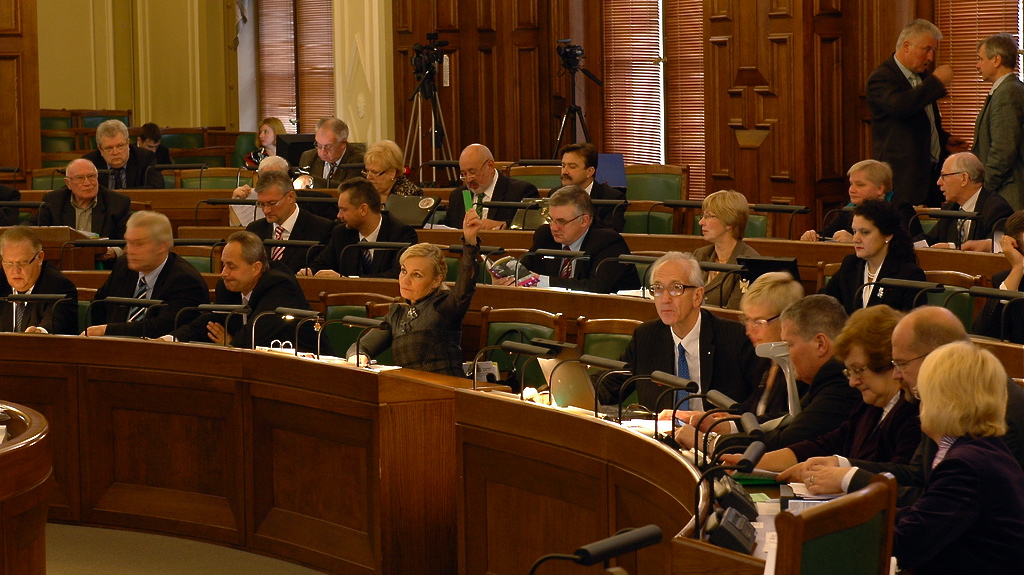RIGA — Regardless of your opinion on Latvian politics, you can’t say voters won’t have plenty of choices this parliamentary election.
Over 12 candidates will compete for every one of the 100 seats in Latvia’s parliament, while the latest polls suggest that the center-left Harmony Center remains the most popular party in the country.
The Central Election Commission announced Tuesday that some 1,239 candidates spread out over 13 party lists have registered to participate in the October national election, which is shaping up to be a watershed given the significant political shake-up expected to occur. By contrast, 19 parties made up of 1,024 candidates competed in the October 2006 election, according to the Delfi.
However, with just two months remaining until the vote only five parties and perhaps even less will be able to surmount the 5 percent barrier, according to the most recent poll.
The GFK pollster announced Tuesday that, according to its most recent poll, the Harmony Center remains the most popular. The Jānis Urbanovičs-led party, currently in the opposition, enjoys a 13 percent approval rating, while the newly-formed Unity is second with 11.5 percent. Less than 8 percent of respondents claim that the Greens and Farmers Union are their most trusted party.
GFK said that, according to its analysis, these three parties plus two others; Par labu Latviju, now led by perennial heavyweights Andris Šķēle and Ainārs Šlesers, and the nationalist For Fatherland and Freedom will make it into the 10th Saeima.
Harmony Center would gain 34 seats, the Unity bloc 31, Greens and Farmers 21, while the For a Good Latvia and For Fatherland and Freedom would muster six each. Remarkably, For Human Rights in a United Latvia, a pro-Russian integration party would not make it into the next parliament according to the GFK poll.
Naturally, much can happen over the next two months, particularly considering that the official campaign hasn’t even begun, but Harmony Center clearly remains the party to beat. The party performed well in last year’s municipal election in Riga, while opponents and critics have yet to find a way to damage its repute.
A victory by Harmony Center would have enormous implications for Latvia, in only because it could result in an ethnic Russian party becoming part of a ruling government coalition, a first for the Baltic state.
Nationalists regard this as a doomsday scenario for Latvia’s independence, while more moderate voices feel that, as a member of the EU and NATO, the country’s future is secure and a more pro-Russian government could open the doors for much-needed invested from the eastern neighbor.
Incidentally, Ventspils Mayor Aivars Lembergs, who leads the Greens and Farmers Union, was quoted in an interview with Latvian media as saying that Ventspils Nafta, a troubled oil terminal, could be sold to Russian interests such as Gazprom or Transneft and that Latvia could benefit from such an outcome.
This article is free to view. To read Baltic Reports’ subscription-only articles, click here.













